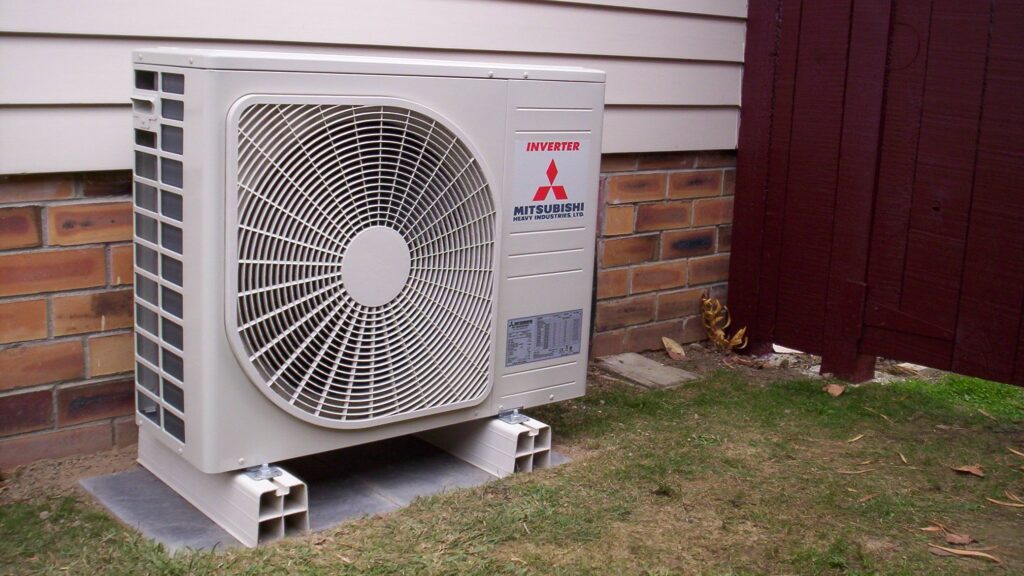
Heat Pumps and Your Co-op
If your co-op’s existing heating, cooling, or domestic hot water systems are getting old, or if members had a hard time coping with last year’s heat dome, it’s a good time to consider switching to heat pumps before renewing your current system. There are many types of heat pumps. Some can be placed on the ground, a deck, or a balcony; others can even (building and warranties permitting) hang off a wall. They can be applied to apartments, townhouses, or detached homes.
Heat pumps are devices that move heat between two spaces (e.g. inside and outside). The flow can be reversed, allowing the system to either cool like an air conditioner or heat an area. This process is more efficient than those used by electric baseboard heaters and gas boilers.
Installing a heat pump usually requires creating two wall penetrations, around 18 cm or 7 inches wide, to create ducts. Mini-split heat pumps may use a single smaller hole. Proper fit and seal are critical to ensure against air or water leaks through the building envelope penetration. Heat pumps are most effective in buildings that have good envelopes and are air-sealed. In an upcoming newsletter, we will talk about the importance of air-controlled spaces and indoor air quality, so keep an eye out for more information.
It’s important to plan for condensation runoff and make sure that installed heat pumps do not create ice in undesirable places during the winter. Be cautious also of noisy heat pumps – depending on their placement, your co-op may want to opt for quieter models. (Don’t underestimate noise when choosing a system.)
Heat pumps have a couple of distinct benefits.
- Heat pumps both heat and cool homes to improve members’ health and comfort, all year round.
- They are more efficient than portable or window-mounted air conditions for cooling, and more efficient than electrical baseboards for heating. Those efficiencies can help reduce energy consumption and lower utility bills.
- If your co-op uses a gas boiler or furnace, installation of replacement heat pumps can significantly reduce your buildings’ greenhouse gas (GHG) emissions. Heat pumps can also be applied to domestic hot water systems. (For apartment buildings, a single centralized system solution could be an option.)
- Heat pumps can also be a sound financial investment in your co-op’s future. If your co-op has a sustainability policy, this may be another factor in your co-op’s decisions around renewal.
For more information on heat pumps, reach out to an HVAC professional to learn about solutions that might apply to your co-op’s buildings. (CHF BC is also happy to discuss options with asset management clients as part of conversations to develop their plans.) You can also learn about provincial rebates and incentives through CleanBC at betterhomesbc.ca/heatpumps/.


